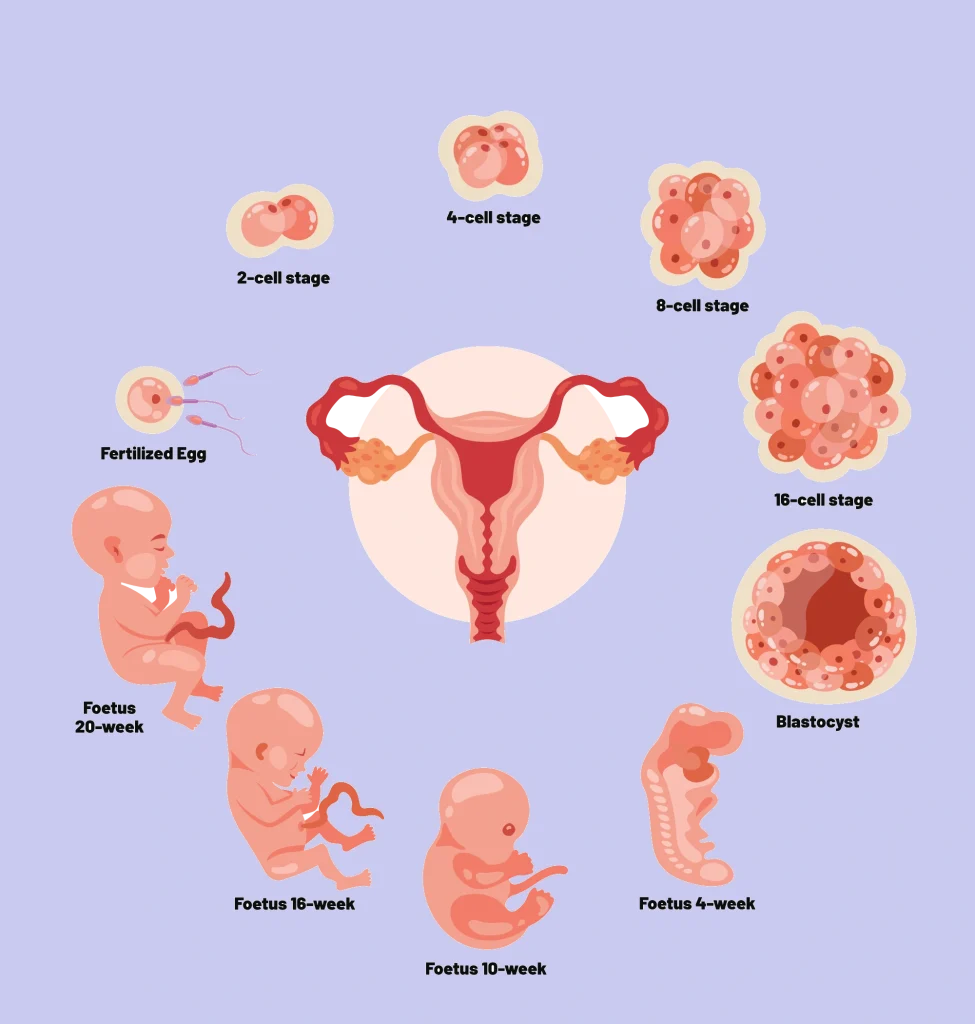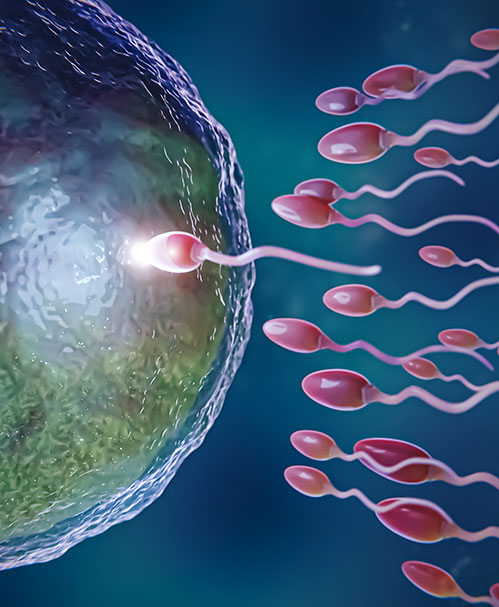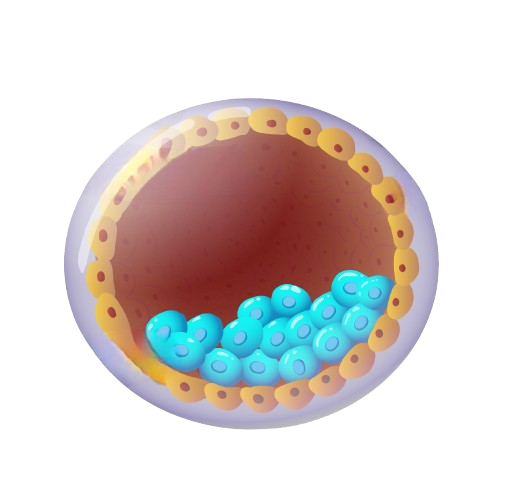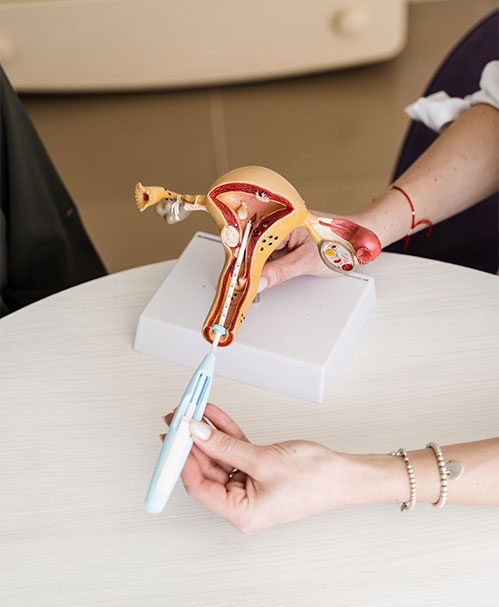Get Second Opinion | Cost Estimation | E-Consultation

Blastocyst Culture in Hyderabad – Advanced IVF Treatment at Hyderabad Fertility Centre
Are you looking for ways to improve your chances of IVF success? At Hyderabad Fertility Centre, a leading blastocyst culture and transfer centre in Hyderabad, we improve the probability of embryo implantation by using advanced embryo development techniques. Contact us today to increase your pregnancy chances through blastocyst culture.
What is Blastocyst Culture?
Embryos are kept in the laboratory and their growth is observed carefully for five to six days before they are transferred to the uterus during a process called blastocyst culture. When it’s time for the transfer, the embryo is in the blastocyst stage and this gives it a better chance to be planted successfully, and increasing the chances of pregnancy. The team at the Hyderabad Fertility Centre is among the finest specialists in the country in doing blastocyst culture with a super equipped modern embryology lab and proven high success rates of IVF treatment.
Who Can Benefit from Blastocyst Culture?
Blastocyst culture is very useful for:
- Couples who have had previous failed IVF Cycles – It boosts the chances of successful implantation.
- Women with conditions of good embryo development – Women that can support extended embryo growth in the lab.
- Couples Undergoing Pre-implantation Genetic Testing (PGT) – To identify genetically normal embryos.
- Patients looking for Single Embryo Transfer (SET) – This lessens the risk of multiple pregnancies while maximizing success rates.
At Hyderabad Fertility Centre, we determine each patient’s fertility profile to implement the most suitable blastocyst culture treatment in Hyderabad.


How Does Blastocyst Culture Improve IVF Success?
- Blastocyst culture offers several benefits over traditional day-2 or day-3 embryo transfers:
- One - Implantation Rate is high – Blastocysts are more robust and healthier embryos, and this increases their chances of survival.
- Two - Better Selection of Embryos – This helps the doctors to identify and select the most viable embryos for transfer.
- Three - The risk of Multiple Pregnancies is reduced – Generally, only one or two high-quality blastocysts are transferred, and that reduces the chances of multiple pregnancies.
- Four - The Synchronization with Uterine Lining goes up – This process is in line with natural conception, because embryos reach the uterus at the blastocyst stage.
- Five - Increased probability of Full-Term Pregnancy – this lessens the risk of early miscarriage or failed implantation.
- At Hyderabad Fertility Centre, we provide advanced blastocyst culture in Hyderabad, aiming for higher pregnancy success rates.
What is the Blastocyst Culture Process at Hyderabad Fertility Centre?
The process involves cultivating embryos for five to six days in a controlled laboratory setting and then after – transferring them into the uterus.
- Retrieval & Fertilization of eggs – In the lab, Eggs are collected and fertilized with sperm
- Extended Embryo Culture – The fertilized eggs are observed carefully for five to six days.
- Selecting the Blastocyst – Most healthy, well-developed blastocysts are selected to be transferred.
- Transferring the Blastocyst – The selected blastocyst is transferred to the uterus through a thin catheter.
- Test for pregnency – A blood test to confirm pregnancy after 10-14 days.
With advanced laboratory techniques, Hyderabad Fertility Centre stands out as the premier blastocyst culture clinic in Hyderabad for highly successful IVF treatments.

What Are the Success Rates of Blastocyst Culture?
- Higher Pregnancy Rates – Success rates of 50-60%, compared to 30-40% for day-3 embryos.
- Lesser Miscarriage Risks – Healthier and strong embryos contribute to healthier pregnancies.
- Increasingly effective in Frozen Embryo Transfers (FET) – Enhances implantation chances in subsequent cycles.
At Hyderabad Fertility Centre, we offer tailored IVF treatment in Hyderabad, ensuring the best conditions for embryo development and transfer..
Are There Any Risks in Blastocyst Culture?
- It is true that blastocyst culture can enhance success rates for a set of patients, but it should be noted that it may not be the ideal choice for everyone. Some risks include:
- Can’t guarantee that all the embryos reach the Blastocyst Stage – Some embryos may stop developing before fifth day.
- For some patients - Embryo Selection could be limited – In situations where only a few eggs are retrieved, blastocyst culture may not be the best fit.
- Long waiting times for transfer – In this method monitoring embryos for five to six days is mandatory before the transfer.
- At Hyderabad Fertility Centre, we thoroughly assess each patient's situation to decide if blastocyst culture is the right solution for them and then proceed. This detailed assessment by our doctors is what that establises us as the leading blastocyst culture hospital in Hyderabad.

What is the Cost of Blastocyst Culture in Hyderabad?
The cost of blastocyst culture in Hyderabad depends on:
- The kind of IVF cycle whether fresh cycle or a frozen embryo transfer.
- Embryo monitoring and lab maintenance costs.
- Additional processes like Preimplantation Genetic Testing (PGT).
At Hyderabad Fertility Centre, we provide affordable blastocyst culture in Hyderabad, with clear pricing and flexible payment options.
Reach out to Hyderabad Fertility Centre today – the leading and most trusted blastocyst culture hospital in Hyderabad – for expert IVF care and improved pregnancy success rates!
Why Choose Hyderabad Fertility Centre for Blastocyst Culture?
- Firstly – Our Experienced Fertility Specialists & Embryologists – Skilled in advanced embryo culture techniques.
- Next – State-of-the-Art IVF Lab Facilities – Fully loaded with the latest incubators and embryo monitoring technology.
- Then – Personalized Treatment Plans – Tailored to meet each patient’s fertility needs.
- Of course, our High IVF Success Rates – Showed success with blastocyst culture and embryo transfer.
- Not the least – Very Affordable & Transparent Pricing – Cost-effective treatment with no hidden fees.
With top-notch fertility care and a patient-centered approach, Hyderabad Fertility Centre stands out as the best hospital for blastocyst culture in Hyderabad.


How Can I Get Started with Blastocyst Culture at Hyderabad Fertility Centre?
If you are considering IVF with blastocyst culture, schedule a private consultation at Hyderabad Fertility Centre. Our fertility specialists will:
- Get fertility condition diagnosed & discuss IVF options.
- Clearly Explain about blastocyst culture process and the success rates.
- Arrive at a tailored treatment plan to increase pregnancy chances.
Frequently Asked Questions
Blastocyst culture treatment is an advanced in-vitro fertilization (IVF) technique where fertilized embryos are cultured for five to six days before implantation, allowing only the strongest embryos to be selected.
Traditional embryo transfer usually occurs on day two or three after fertilization, while blastocyst culture allows embryos to develop until day five or six, increasing implantation success rates.
Couples who have multiple high-quality embryos, a history of failed IVF cycles, or wish to reduce the number of embryos transferred to minimize multiple pregnancies are good candidates.
The benefits include higher implantation rates, better embryo selection, lower risk of multiple pregnancies, and improved synchronization with the uterine lining for successful implantation.
Success rates vary but are generally higher than day-three embryo transfers, with pregnancy rates often exceeding 50-60% depending on maternal age and embryo quality.
Since fewer embryos are transferred due to better selection, the chances of multiple pregnancies are lower compared to traditional embryo transfer methods.
Not all embryos survive to the blastocyst stage; some may stop developing before day five, making this method more suitable for patients with multiple fertilized embryos.
Embryos that fail to develop into blastocysts cannot be transferred or frozen and are typically discarded or used for research, depending on the patient’s consent.
Yes, preimplantation genetic testing (PGT) can be performed on blastocysts to screen for genetic disorders or chromosomal abnormalities before implantation.
While generally safe, risks include the possibility that no embryos reach the blastocyst stage, which may result in cycle cancellation for some patients.
"I confess words are not enough to express our gratitude for Hyderabad Fertility Centre—the leading fertility centre in Hyderabad—that has helped us realize our dream of becoming parents. After having been through various failed attempts elsewhere, we were hesitant but chose to give it one last try. From our first consultation, we were convinced with the compassion extended by Dr. Swapna Chekuri and her team's expertise. They took utmost care and explained each step clearly and were always ready to answer our doubts. The advanced technology and ethical practices spurred our confidence. Today, we are blessed with a lovely little baby, all thanks to the Hyderabad Fertility Centre. We highly recommend them to anyone who is struggling with infertility."
"We were on an emotional roller coaster for years, trying to conceive without success. But Hyderabad Fertility Centre – the world-class IVF clinic in Hyderabad – changed our story. Their personalized treatment plan, transparent procedures, and the support of Dr. Swapna Chekuri made all the difference. The team’s positivity and encouragement kept us strong throughout the journey. The state-of-the-art facilities and ethical practices gave us hope, and today, we are proud parents. We can't thank the team enough for turning our dreams into reality. If you are looking for advanced fertility solutions in Hyderabad, this is the place to be!"
From our first consultation, Dr. Swapna Chekuri showed warmth, compassion, and expertise, creating a personalized IVF plan for us. The process—from screenings to embryo transfer—was smooth and well-guided. The clinic stood out for its transparency, advanced technology, and emotional support. Dr. Swapna and her team were always available to answer questions and offer reassurance. After a long wait, we were overjoyed to hear our baby’s heartbeat. Today, holding our beautiful baby girl feels like a dream come true. We are forever grateful to Dr. Swapna and Hyderabad Fertility Center for giving us the priceless gift of parenthood.
After years of heartbreak, we turned to surrogacy at the Hyderabad Fertility Center under the guidance of Dr. Swapna Chekuri. Her compassionate care and the clinic’s professionalism gave us renewed hope. The process was smooth, transparent, and emotionally supportive. Today, we are proud parents of a beautiful baby boy. Dr. Swapna and her team made our dream come true. Their dedication and medical excellence are unmatched. We are forever grateful for the miracle they gave us and highly recommend HFC to any couple looking for a trustworthy and successful surrogacy experience.
